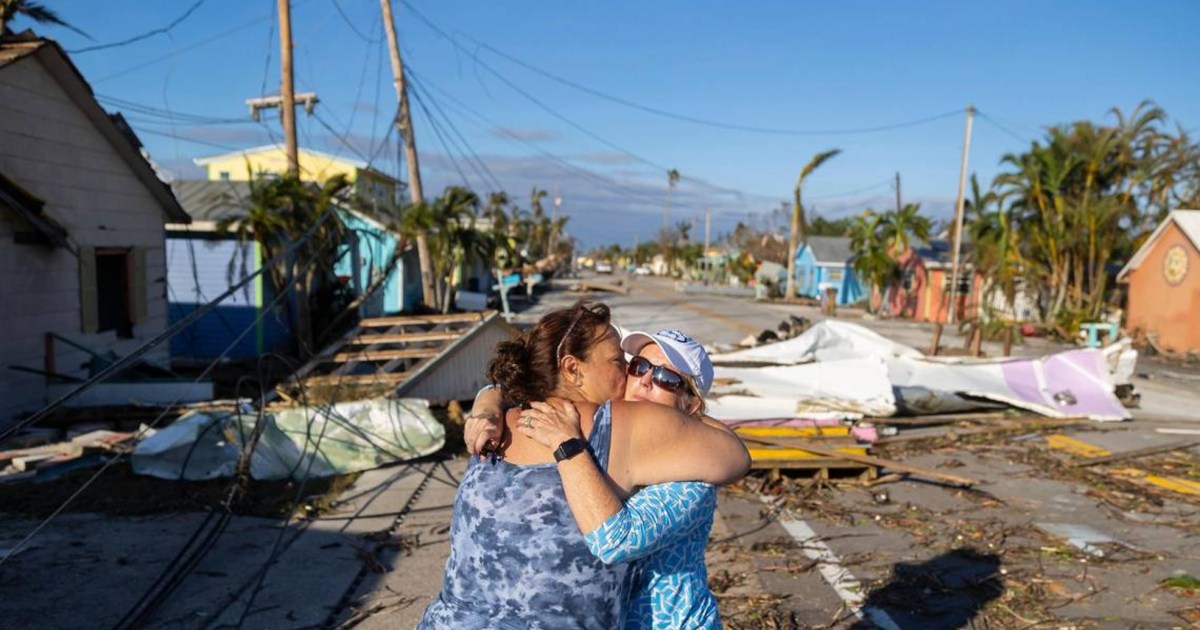…To handle massive payout events like [Hurricane] Andrew, insurance companies sell policies across different markets—historically, a hurricane wasn’t hitting Florida in the same month a wildfire wiped out a town in California. They themselves also pay for insurance, a financial instrument called reinsurance that helps distribute risk across geographic regions. Reinsurance availability remains a major driver of what insurance you can buy—and how much it costs.
But as climate change intensifies extreme weather and claims pile up, this system has been thrown into disarray. Insured losses from natural disasters in the US now routinely approach $100 billion a year, compared to $4.6 billion in 2000. As a result, the average homeowner has seen their premiums spike 21 percent since 2015. Perhaps unsurprisingly, the states most likely to have disasters—like Texas and Florida—have some of the most expensive insurance rates. That means ever more people are forgoing coverage, leaving them vulnerable and driving prices even higher as the number of people paying premiums and sharing risk shrinks.
This vicious cycle also increases reinsurers’ rates. Reinsurers globally raised prices for property insurers by 37 percent in 2023, contributing to insurance companies pulling back from risky states like California and Florida. “As events are getting bigger and more costly, that has raised the prices of reinsurance in those areas,” said Carolyn Kousky, the associate vice president for economics and policy at the Environmental Defense Fund, who studies insurance. “It’s called the hardening of the market.”
In a worst-case scenario, this all leads to a massive stranded asset problem: Premiums get so high that property values plummet, families’ investments dissipate, and banks are stuck holding what’s left.
More simply, the global process for handling life’s risks is breaking down, leaving those who can least afford it unprotected.



Yeah, let’s worry about insurance and not the climate change itself.
If the capitalists had sane priorities, we wouldn’t be in this situation. The capitalists knew what they were doing to the climate through their own experts, and not only covered it up for decades, but used their endless wealth to wage a propaganda war to discredit outside scientists who came to the same conclusions.
Humanity’s epitaph should truly be that line from that famous comic, I’d like it to be made into a skyscraper sized titanium tombstone before the end, for any passing or newly evolved sapient species to know us by the only thing that we ever cared about:
"Here lies Humanity.
Sure, we destroyed ourselves eyes wide open, but for one glorious moment in time, we created a lot of value for shareholders!"
Only every other system has been far worse for the environment. The main reason capitalism has been bad is because it created some much general wealth that people have too much money to be responsible.
deleted by creator
Well climate change was always going to be a crisis that was ignored until it started hitting people’s pocketbooks.
That’s not the takeaway I got from this. Opposition to climate change reform was always rooted in money. We were told the expense was unnecessary or just too much. Now we see that it’s too expensive to ignore.
That’s a good take
Won’t someone PLEASE think of the shareholders?!
Capitalism only knows how to care about money.
This is why we need a rebated carbon tax immediately. Pricing carbon emission equivalents into products is how we subtly signal to everyone along a supply chain “buy this not that”.
As an aside, “Environmental, Social, and Governance” (ESG) investment is a way to make investments that at least purport to be socially conscious. One could make the case that they are in the company’s self interest, since companies don’t exist in a vacuum. They have employees, suppliers, customers, etc. that all get hurt when any of those three causes is weakened.
Edit: The argument about the company’s self interest is important because people like CEO’s and fund managers have a fiduciary duty towards the company or wealth they manage. They must at least be able to make an argument that they believe themselves to be acting in their clients’ best financial interest.
Except it just gets passed right along to to consumers. Have to actually hit shareholders directly somehow. Tax the shares in a manner that is tied to the share and not the company.
That’s part of the point, that it gets passed to consumers. The consumer gets nudged towards lower carbon products. The rebate is there to offset the cost of the carbon tax that is baked into goods and services. It is evenly split between everyone so that people who cause fewer carbon emissions than average will see a net benefit.
It is probably the thing that will start to trigger changes in policy. Not good changes, but some changes.
For instance, the Florida State government has become the insurer of last resort for a lot homes. It may get to a point where a bad hurricane season could bankrupt the state.
It’s gonna be the first real pain a lot of people feel from climate change.
We should worry about both climate change and resilience. Yeah, there are the people who want to ignore climate change because getting off their ass and doing something about it would be inconvenient. But at the same time, it is here and severe. We need to acknowledge its effects and work to deal with the ramifications for both humans and the environment.
I agree with your sentiment. But this is point to focus on. Average people are getting priced out.